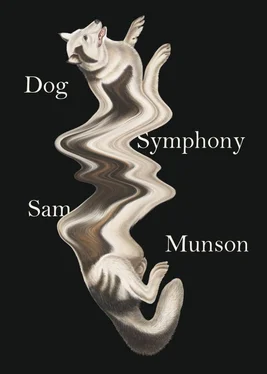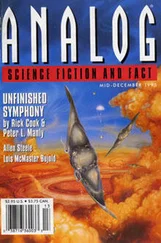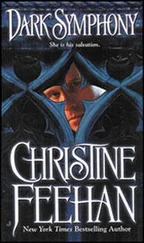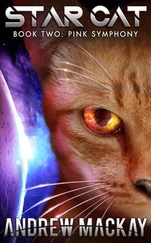I told her I would not relinquish it. She took out her baton. Don’t be an idiot, Mr. Pasternak, she said. I held the tooth. She struck my wrist with the baton once, lightly. My hand opened involuntarily and the tooth hit the puce tiles. Or: it struck eternity and its minor thump struck my tympanum. You were told to stay away, said Luxemburg. Her adjutants kept their eyes on me. I have no intention of leaving, I said. It’s not up to you, can’t you see that, you goddamn professors don’t fucking understand anything, said Luxemburg. Her adjutants nodded three nods. I said, again, that I was not going anywhere, that I demanded to see Dr. Mariategui, my academic sponsor, my colleague, and my valued friend. The last phrase I shouted. My scoured throat ached. Jesus fucking Christ, said Luxemburg. She readied her baton. A leather cord dangled from the butt, and to this cord was affixed a gold label. I am going to ask you once more, said Luxemburg. I did not speak. In the silence, intestinal rumblings (to this day I believe they came from the lackey). Fuck you, then, said Luxemburg, as she brought her baton down on my right shoulder. On the cord label I saw the words, the three words, the three modulated, florilegial, black, slanted, English words.
MY MOLAR LAY ON the nightstand. Yellow-gray, at rest. The footboard whippets slept, reflected in the dressing mirror. When I touched my eyebrows, my fingers scraped against bands of gauze. To the extent that I was present anywhere I was present in my bedroom (Violeta’s), dusty and breezy.
Violeta herself sat at the desk, my useless papers rustling behind her back. She wore a pink oxford shirt and jeans; bare feet, darkly tanned. They dumped you on the sidewalk, she said. Then she held up two white slips of paper, grimy with writing. Dr. Mariategui left these, she said as she set them back down on the desk. The name stunned me, sickened me with hope. Then I remembered — she meant the Colegiales nephrologist, her old friend, and as she approached (and as her double appeared, stately and silent, in the dressing mirror) I read the name on the prescriptions: FELICIANO MARIATEGUI, D.M. Don’t try to speak or move too much just yet, she said, internal medicine is not his specialty but he told me you need rest. She went on as my excavated molar stared at me. I’ve heard about cases like this, but I never thought they’d do it to a foreigner. She must have found the tooth beside me on the sidewalk and placed it on the nightstand, I thought.
Her strong palm across my forehead. It landed there, rested there. Blunt morning light filled my open mouth. My tongue dead, heated, adhesive. In Violeta’s right hand a glass filled with water and ice (also more blunt sunlight). The cold liquid hurt my throat but I gulped it down in the amphibious manner so frequent with Homo sapiens. Violeta told me I should be very grateful to Dr. Mariategui, who’d come late last night. A house call, Mr. Pasternak, in an era when house calls are utterly obsolete. I apologized. I attempted to apologize, I should say. The nephrologist had packed the wound in my gum with gauze. Violeta, who had managed to decipher my dry groans, told me to save my apologies: The Department of Social Praxis really had been getting out of hand, there was no denying it.
I passed out again. When I woke, the sun was well past zenith. Almost down. No longer shining into my mouth. I managed to get up, though the raw socket in my gum pulsed at every step. I picked the gauze pads free from my eyebrows. They came away smeared with tacky blood, and tore out hair as well. A green bruise shone under my right eye; another one, blue, shone on my left shoulder. The orderly, faint marks of a boot tread had not yet faded from my sternum, and my testicles were still swollen. The stream of water striking them in the shower caused a pain so intense and exquisite that I almost came, even as I cursed and spat. My urine streaking into the drain had a pinkish tint. The foam that spattered the sink during my dental ablutions was likewise pink.
After the shower, I gathered my passport and address book, and lined up my shirts monastically in my suitcase. My edited conference papers I discarded in the metal wastebasket next to the desk; then I retrieved them and tore them into strips, arranged them in the bathroom sink, turned on the fan, and burned them. The greasy, sour smoke made me gasp, and these gasps resurrected my bodily pain. I coughed up fine-misted blood. Blood soaked the dressing in my molar hole, soaked and colored it completely. The smoke cloud lingered, quivered, above the sink. I closed the door to conceal it, as one might tenderly close a door to contain a tender odor. It nonetheless leaked autumnally into my room as I packed my socks and my books. Chulkov’s General Theory and the Apukhtin crushed my shirt collars, and then suitcase darkness crushed them, gravity crushed the closed suitcase, and God (who does not exist) crushed everything else.
I found Violeta in the living room, pouring water into the vase with two lilac stems, and told her I wanted to settle up. She led me to a small room off the kitchen, its door locked with two locks, and, at a narrow-legged black desk, using a black calculator that spat out white paper, she totaled my bill. It was much less than what it should have been, given her nightly rates. Perhaps her sense of dignity as a hotelier prevented her asking full price from a guest who had been arrested and beaten by the University police. We shook hands, hers still warm, still strong, and she asked if I intended to fly out that day. Yes, I said. I cannot recommend that, Mr. Pasternak, she answered, and then added that the airport was closed. For how long, I asked. Until tomorrow afternoon, most likely, she said, they made the announcement while you were asleep. My suitcase creaked, and with it my lungs. I asked when the next bus to Retiro Station left. A much better choice, Mr. Pasternak, she said, they mentioned nothing about trains. I knew where I wanted to go, to Chile, to Ana’s homeland. Getting there was simple. The Belgrano line took you right over the border. And there I could dig up her father — he lived, I remembered, in Antofagasta, once a copper-mining town — and contact the police of Chile, famous through the contemporary southern world for their incorruptibility. Yes, I would announce, I would announce her death… the term sickened me, but no other, nonperiphrastic term for death exists. Ana was dead, I assumed. I had already wept for her. And we never gave in to domestic theatrics. Reporting her death to any authority here was useless. But she retained Chilean citizenship, that I knew, and perhaps her onetime state might care enough — or at least despise its neighbor enough — to take notice.
On the bus to Retiro, the conductor looked at me over his shoulder. I saw his pitted cheeks and convict’s stubble. Isn’t everything possible, in the end? Even the black spire of Retiro station is possible. Only that spire is possible. Gallery lights, sulfur-yellow, poured forth from the upper facade. Students and pseudostudents leaned against the casemented bulwark facing Ramos Mejía. Around their necks nylon collars: black, green, blue-and-white checked, red, a few tangerine. Attached to the collars tin tags shaped like crossbones. These chimed at each student gesture, each student breath. In their numbers the tags could be heard above the taxis, the bass blares of bus horns. Two sets of steel bowls sat before the north and south entrance arches, in which marble-lit darkness gathered. Slicing this darkness: arms and legs. I kept my gaze on the dim cement as I crossed the pavement skirt and inhaled the powerful student smell — sweat, soap, and smoke. My raw eyebrows hurt and my bruises ached; I paused over each garbage can to empty my mouth of bloody spittle. But the security officers didn’t notice me, their sky-blue limbs went on slicing up facticities and shards. Despite their presence, the station appeared to be open and functional.
Читать дальше












